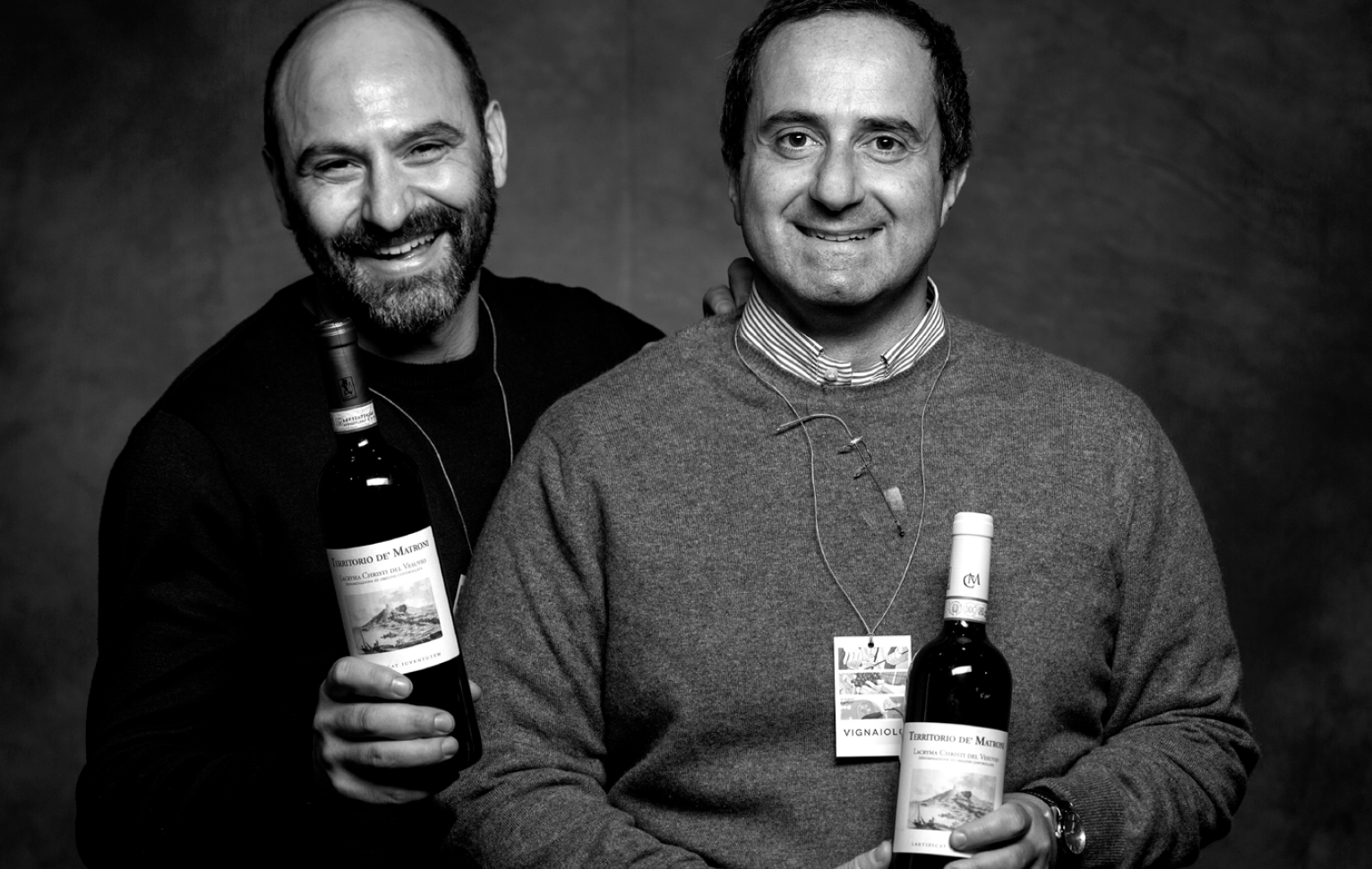
Cantine Matrone
Cantine Matrone
Campania, Italy
We are in Boscotrecase, in the province of Naples, on the slopes of Vesuvius, where the sedimentary soil has been enriched by old and new lava flows, the last one dating back to just 1944. Here the Matrone family, which settled in the area more than one and a half centuries ago, has reached its third generation. The family owns a total of 5 hectares that face south and south-east towards the sea, of elevations ranging from 50 to 300 metres above sea level. Almost all the vines are ungrafted, in other words they come from the cut roots of old vines; the espalier technique is slowly giving way to more ancient training methods, for example head or pergola. Andrea Matrone was born in 1983 and graduated from the University of Florence. After travelling to and harvesting grapes in Australia, New Zealand and France, he returned to his homeland, where he established the production winery in 2014 together with his cousin Francesco, who is a notary. Andrea’s love for his volcano immediately led him to attempt to rediscover grape varieties that aim at recovering local grapes like caprettone, greco and falanghina pompeiana (also called count’s grapes) to make white wines, piedirosso, aglianico, sciascinoso, cascaveglia and cancello for the reds. No chemicals are used in the vineyard, whose soil is enriched with horse manure coming from a nearby farm that breeds broodmares. The grass between the rows of vines is cut by hand using a scythe, with the aim of producing a light mulch to preserve the humidity of the soil; copper and sulphur are applied rarely, and only when needed. The grapes are harvested manually, and ferment spontaneously in steel and plastic barrels. This year Cantine Matrone is experimenting with a 600-litre egg made of food grade plastic (porous multilayer pet), and the results seem to be interesting. Andrea struck us with his 360° vision that is strongly rooted in his origins; he knows how to read his land and projects that vision onto his wines, thinking about the future. He knows where he’s going and has what it takes to astound with his work; his wines are exciting and wellmade, with a mineral, elegant character.
